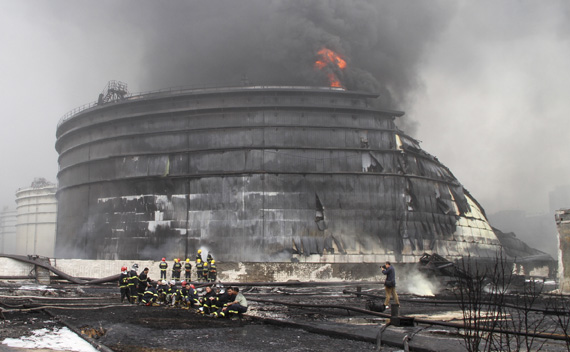Let’s Put the New Back in Newsworthy
More on:

Two things about China I know to be true:
First, the media counts anything—however remotely interesting—as newsworthy if it is about China.
Second, China’s capacity for denial (think the Great Leap Forward, the Cultural Revolution and Tiananmen for starters) should never be in doubt.
This past week, both truisms were in full bloom:
• The media reported that China surpassed the United States as the largest consumer of energy in the world, and the Chinese denied it
• The media announced that foreign investors were fed up with unfair Chinese trade and investment practices, and the Chinese denied any such unfairness
• Finally, the media reported that the United States and South Korea want to conduct joint naval exercises to deter North Korean aggression, and China denied the need for them to do it anywhere near the Chinese coast
Is any of this really surprising? How about looking at something truly newsworthy? Two Chinese conglomerates—the Zijin Mining Company and the China National Petroleum Company—were linked to two major environmental disasters in one week, and the Chinese government didn’t deny any of it.
Zijin was illegally dumping toxic wastewater from its copper smelting plant in Fujian Province into a nearby river, while two China National Petroleum-owned pipelines exploded causing a major oil disaster in the Dalian port area. Of course, in both cases, the initial response was a cover up—Zijin didn’t report its toxic wastewater leaks and then blamed the fierce storms in the region. The oil pipe explosions were initially blamed on a docked foreign oil tanker (reportedly Liberian-run, and Singaporean-owned), but authorities later fessed-up that it looked like the dock workers were at fault.
In both cases, the Chinese government opened the door to real investigations with NGOs and the media freely offering their perspectives. Thus, we had Dalian authorities claiming that clean-up might take 3 to 5 days, while Greenpeace Beijing and assorted environmental experts were laying out a clean-up effort that could take months or even years. In the Zijin case, fines are mounting and several Zijin officials have already been detained. The Chinese media are providing non-stop reporting on both cases.
It is too early to offer conclusions about why the Chinese government has chosen not to deny its companies’ culpability. Maybe they recognize that when lives and livelihoods are at stake, it doesn’t pay to prevaricate. Or, perhaps they realize that in a world where more than 400 million Chinese are wired, denial could provoke a massive anti-government backlash. It is even possible that they see an opportunity to be viewed as the good guy in dealing quickly and openly with these environmental crises. Whatever the reason, such openness in China is still new enough to merit the new in newsworthy. In my book, this is the real China news of the week.
More on:
 Online Store
Online Store
